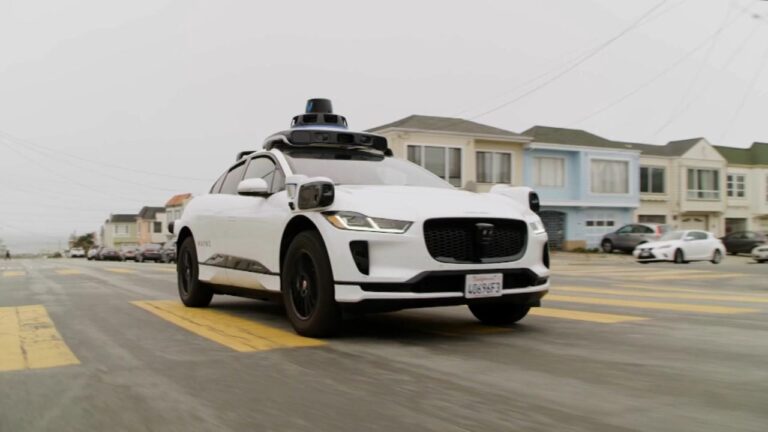Waymo Launches Autonomous Vehicle Trials on Philadelphia Roads
Waymo, Alphabet Inc.’s self-driving car division and Google’s sibling company, has embarked on a new phase by introducing its autonomous vehicles to Philadelphia’s urban streets. This expansion represents a pivotal advancement in Waymo’s strategy to deploy fully autonomous transportation solutions within complex metropolitan settings across the U.S. The Philadelphia pilot is designed to rigorously test the system’s capabilities amid the city’s intricate traffic conditions, diverse pedestrian activity, and a blend of historic and contemporary urban infrastructure.
Equipped with cutting-edge sensor arrays and upgraded software, Waymo’s fleet is tailored to enhance safety and operational reliability. The trial focuses on several critical technological improvements, including:
- Advanced pedestrian recognition and response mechanisms
- Real-time adaptive navigation for dynamic route adjustments
- Refined AI decision-making processes for handling complex intersections and traffic scenarios
These innovations aim to expedite regulatory clearances and foster public confidence by showcasing the system’s adeptness in managing real-world urban driving challenges.
| Testing Focus | Technological Feature | Expected Advantage |
|---|---|---|
| Pedestrian Safety | 360-degree sensor coverage | Enhanced collision prevention |
| Urban Traffic Handling | AI-powered decision engine | Smoother and safer navigation |
| Environmental Adaptability | Advanced sensor calibration for weather | Consistent performance across conditions |
Navigating the Complexities and Advantages of Urban Autonomous Driving
Introducing autonomous vehicles into dense cityscapes like Philadelphia presents a unique set of challenges alongside transformative opportunities. The primary hurdles include managing intricate traffic flows, unpredictable pedestrian movements, and the city’s labyrinth of narrow streets and intersections. Waymo’s technology must continuously adapt to dynamic scenarios such as construction detours, erratic driver behavior, and fluctuating weather patterns. Moreover, regulatory frameworks and public perception remain critical factors influencing the pace of autonomous vehicle integration.
On the upside, the deployment of self-driving cars in urban areas promises substantial benefits, including:
- Alleviation of traffic congestion through intelligent route planning
- Reduction in accidents by minimizing human error
- Expanded mobility options for underserved and disabled populations
- Lower greenhouse gas emissions via optimized driving efficiency
| Urban Challenge | Corresponding Opportunity |
|---|---|
| Managing complex traffic patterns | AI-driven dynamic routing systems |
| Overcoming public skepticism | Demonstrated safety improvements |
| Adapting to diverse weather conditions | Robust sensor and software calibration |
| Uncertain regulatory landscape | Collaborative policy development |
Transforming Philadelphia’s Transportation and Economic Ecosystem
Waymo’s autonomous vehicle initiative is set to reshape Philadelphia’s transportation framework by easing congestion, boosting road safety, and enhancing access for marginalized communities. The reduction in reliance on human drivers is expected to improve traffic flow during peak periods and decrease accident rates linked to human error. Local transit authorities are exploring ways to integrate autonomous vehicles with existing public transit, aiming to establish a cohesive, multi-modal transportation network that synergizes AI-driven cars with buses and subways.
Economically, the testing phase is already catalyzing job creation across sectors such as technology development, vehicle servicing, and infrastructure modernization. Philadelphia’s tech and automotive industries are poised to benefit from increased demand for innovative components and services. The table below outlines projected economic impacts and employment growth from Waymo’s presence:
| Industry Sector | Projected Job Increase | Economic Contribution (2024-2026) |
|---|---|---|
| Technology & Software Development | 500+ | $38 million |
| Vehicle Maintenance & Operations | 230+ | $14 million |
| Local Supply Chain & Manufacturing | 320+ | $20 million |
- Innovation Catalyst: Spurs startups specializing in AI and smart mobility technologies.
- Tourism Enhancement: Positions Philadelphia as a cutting-edge hub attracting tech enthusiasts and visitors.
- Academic Collaborations: Fosters partnerships between Waymo and local universities for research and workforce development.
Strategies for Seamless Integration of Autonomous Vehicles with Existing Traffic Infrastructure
To facilitate the smooth incorporation of autonomous vehicles into Philadelphia’s current traffic ecosystem, a comprehensive, multi-faceted approach is vital. Collaboration between city planners and technology developers is necessary to upgrade traffic control systems with intelligent sensors that enable real-time communication between vehicles and infrastructure. This connectivity will allow autonomous cars to anticipate traffic signal changes, optimize flow, and reduce accidents caused by human error. Additionally, implementing adaptive speed limits and dedicated lanes for autonomous vehicles during peak hours can further alleviate congestion and enhance safety.
Essential elements for successful integration include:
- Developing robust data-sharing frameworks between AVs and municipal traffic management
- Establishing stringent safety standards and testing protocols for mixed traffic environments
- Launching public education initiatives to familiarize traditional drivers with AV behaviors
- Implementing advanced cybersecurity measures to safeguard vehicle-to-infrastructure communications
| Integration Component | Benefit | Projected Implementation Period |
|---|---|---|
| Intelligent Traffic Signals | Optimized traffic flow in real time | 6-12 months |
| Dedicated Autonomous Vehicle Lanes | Minimized conflicts with conventional vehicles | 12-18 months |
| Cybersecurity Frameworks | Protection against network vulnerabilities | Continuous |
Conclusion
As Waymo broadens its autonomous vehicle testing to include Philadelphia, the company is positioned to collect invaluable data that could hasten the mainstream adoption of self-driving technology. This initiative not only reflects the accelerating momentum within the autonomous vehicle sector but also highlights Philadelphia’s emerging status as a key market for innovative transportation solutions. Residents, policymakers, and industry stakeholders will be closely monitoring these developments, which may ultimately pave the way for safer, more efficient urban mobility in the near future.








